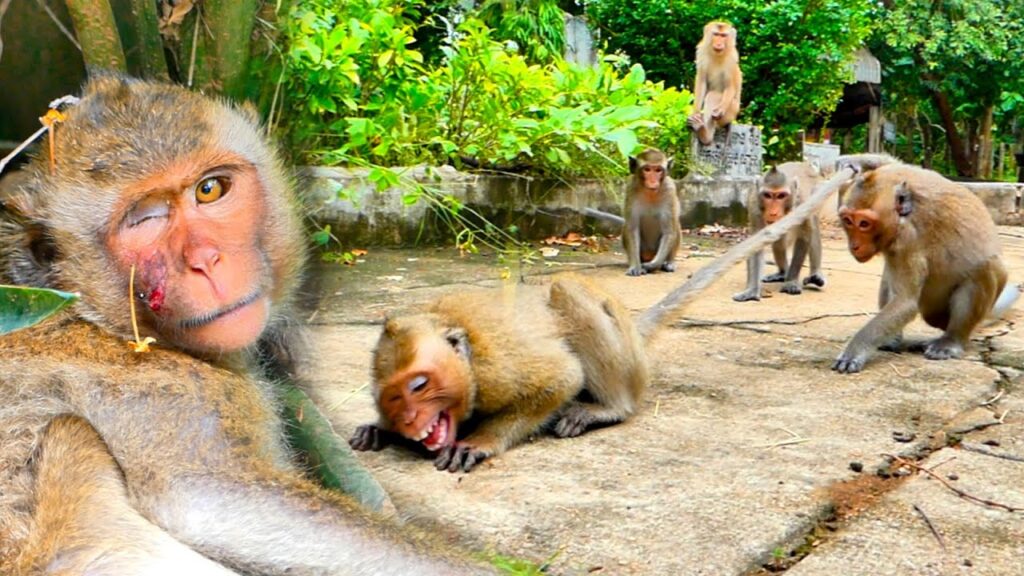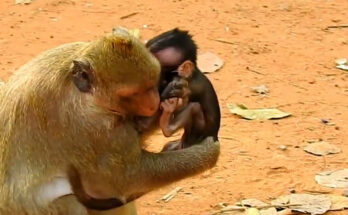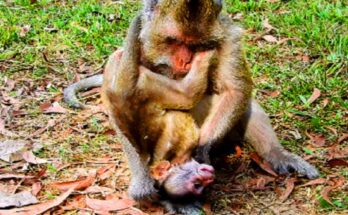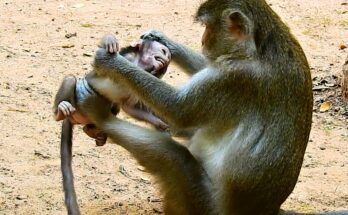
In a truly heartbreaking scene, a tiny, helpless monkey is seen all alone, shivering with fear and sadness after being abandoned. This baby, once cradled by its mother, now finds itself rejected not only by her but also by the entire troop. Every step the baby takes closer to the group is met with hostility—growls, tail slaps, and even bites from older monkeys who see the little one as an outsider. The baby’s eyes search for warmth, for familiarity, but all it receives is cold indifference and aggression.
This rejection is more than just emotional; it puts the baby’s survival at risk. Without the protection of the group, the little monkey is left exposed to predators, starvation, and the harshness of the wild. He tries to approach a few juvenile monkeys to play, his small arms stretched out for comfort, but they quickly run away or scream, alerting adults to chase him off again. The baby crouches low, trying to make himself invisible, his body trembling from fear, confusion, and loneliness.
Some female monkeys, likely mothers themselves, glance toward him—but none offer help. No one steps in to guide or groom him. He’s simply not accepted. The troop’s tight social bond, usually a sign of strength, becomes a wall too high for this abandoned soul to climb.
As the sun begins to set, the baby monkey curls up alone, his small frame barely covered by his thin fur. The look in his eyes tells a story of pain that words can’t describe. It’s a powerful reminder of how important love, care, and community are—not just in humans but in the animal world too. And in this moment, one can only hope that someone will show him kindness before it’s too late.


